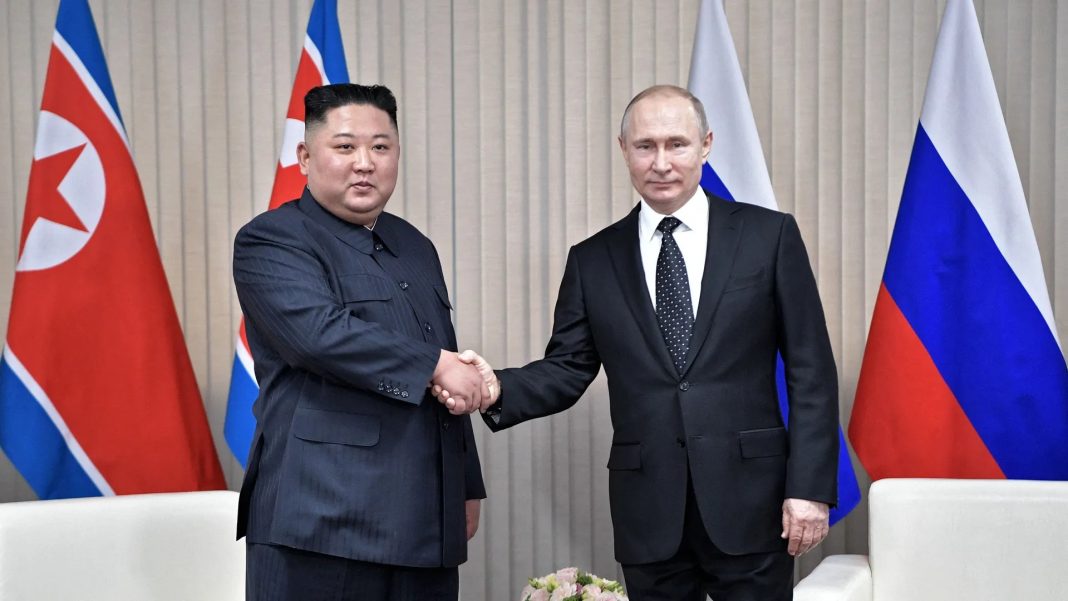Russian Defense Minister Andrei Belousov recently held talks with North Korean leader Kim Jong Un, culminating in an agreement to enhance military cooperation between the two nations, as reported by North Korean state media on Saturday. This meeting, which took place on Friday, has taken on a significant geopolitical tone against the backdrop of ongoing tensions surrounding Russia’s military actions in Ukraine.
The United States and South Korea have accused North Korea of sending over 10,000 soldiers to support Russia in its military campaign in Ukraine. Experts suggest that Kim’s administration is keen on acquiring advanced technology and valuable battle experience to enhance its own military readiness. In his address, Kim criticized the recent initiatives by Western powers that enable Ukraine to strike Russian territory, labeling these actions as a “direct military intervention” in the conflict. He asserted that Russia’s response to these provocations is justified self-defense.
In June, a strategic partnership treaty was signed between Kim and Russian President Vladimir Putin, mandating both nations to provide military assistance to one another “without delay” in the event of an attack, while also cooperating to counter Western sanctions. The North Korean state media emphasized that Belousov’s visit would significantly bolster the defense capabilities of both nations and foster friendly military cooperation.
Belousov expressed appreciation for the deepening ties between the two countries, commending North Korea’s “absolutely independent foreign policy.” Analysts posit that North Korea’s engagement in the Ukraine conflict could serve as a strategic pivot in its foreign policy, as the nation seeks to redefine its role in the context of the unfolding military dynamics.
By contributing troops to the Russian military effort, North Korea positions itself as a critical player within the Russian war economy, potentially stepping into the role of supplier of arms and military assistance to Russia—an indication of a shift away from reliance on its traditional ally, China. Russia’s vast natural resources, including oil and gas, present a compelling incentive for Pyongyang’s alignment.
Belousov, who is noted for his expertise in economic strategy rather than military affairs, could facilitate these arrangements. An analyst from the Korea Institute for National Unification commented on Belousov’s specialization in long-term strategies for military supplies, evasion of sanctions, and post-war reconstruction efforts.
Since Russia’s incursion into Ukraine in February 2022, military ties between Moscow and Pyongyang have deepened amid extensive sanctions imposed by the United Nations. These sanctions target both nations—Russia for its conflict in Ukraine and North Korea for its nuclear weapons program. Following the recent U.S. presidential election, the Biden administration has intensified its military support for Ukraine, transferring additional weaponry and permitting strikes on Russian territory.
Kim has reiterated that North Korea will consistently support Russia’s sovereignty and territorial integrity. In a notable legislative move earlier this month, North Korea ratified a significant defense pact with Russia, following unanimous approval from lawmakers in Moscow and subsequent endorsement by President Putin.
In response to the deployment of North Korean troops, both South Korea and Ukraine announced a commitment to enhance their security cooperation. President Yoon Suk Yeol indicated a notable policy shift regarding military aid, stating that South Korea is “not ruling out the possibility of providing weapons” to Ukraine, which marks a potential departure from the country’s previously established prohibitions on arms sales to active conflict zones.





